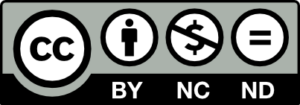Have the first eight months of this year left you feeling slightly … tapped? You’re not alone! Being exhausted is both okay and natural — and recognizing our individual and collective exhaustion provides an important opportunity to recharge and prepare to fight for the planet (and our sanity) in the months ahead.
With that need to recharge in mind, we’re about to take our annual summer publishing break. We’ll be back with new articles and commentaries starting on Tuesday, Sept. 2.
Although we won’t publish anything else during that time, we’ll be in the office for another week or so preparing materials for September and October. We have a lot of great stories coming your way — sign up for our newsletter so you don’t miss any of them.
But we’ll also devote time and energy over the next few weeks toward finding new influences and inspirations, being creative, experiencing nature to its fullest, renewing our community connections, and reflecting on the chaos of 2025 (so far). We hope you have similar opportunities, now or later, to do the same.
Not sure where to start? Here are 18 things you can do over the next couple of weeks to help set the path for a powerful, nature-loving, resilient, and resistant autumn:
1. Breathe. Take a deep, slow breath, followed by a slow, thorough exhale (maybe even a loud sigh). Now repeat, one or two more times, with your eyes closed if that makes you feel comfortable. We’re all feeling stressed, and a moment of deep breathing can help to alleviate some of the pressure. Taking even just 15 seconds to slow down and focus can help us lower our collective blood pressure, sharpen our brains, and settle in for whatever comes next.
2. Protest. Millions of people around the country — and around the world — are marching in the streets to stand up to rising authoritarianism and declining environmental protections. Join them. Make your voice heard. Make connections with your community. Build for the future.
3. Look ahead to your November election. Sure, we just had a big election last November (you’ve probably noticed), and local ballots this November probably won’t contain many dramatic options, but you should never pass up a chance to participate in the electoral process. (The fate of one of my local libraries, for instance, depends on a just-held August election — who expected that?)
4. Look even further ahead to the November 2026 elections. I know, it seems too early to start thinking about the midterms, but they’re closer than you think. Ask if any candidates or community organizers in your area need support. Can you help with voter registration or other efforts? Is there an opportunity for you to run for anything? The midterms have never been so important, so it can’t hurt — in fact, it’s essential — to start planning now.
5. Check your tires. Make sure they’re at the manufacturer’s suggested air pressure. All vehicles, even electric or hybrids, run more efficiently if their tires are properly inflated. Simple stuff like this adds up and can make a big, collective difference, so don’t pass on the routine maintenance of your car — or anything else (including your health).
6. Write to your mayor, town council, or other local leadership to tell them that they’re doing a great job on an environmental issue — or how to do a better job. We often forget that our local leaders can make a difference. A simple “thank you” can make them feel appreciated; a polite or insistent nudge can help them move in the right direction. Volunteering your time or expertise can also help!
7. Find a “new to you” green space. Are there parks, trails, fields, water bodies, outdoor art, or other spaces near you that you haven’t visited yet? Plan a trip! Then share what you discovered with friends.
8. Look at an animal in your neighborhood. Write a poem about what you saw. Anyone can write a poem. You might even find that the act of writing about a local wildlife species awakens you to a new observation about that plant or animal — or about your relationship with that species.
9. Pick up some trash. Maybe you just grab up one piece or garbage at a time, or you could put on some gloves and take a trash bag with you for a longer walk. You might spark an interesting conversation with passers-by.
10. Consider buying an electric vehicle while tax credits are still in place. I wouldn’t run out and replace your vehicle just because these credits will vanish on Sept. 30, but if you need your own transportation and you’re in the market an EV, now might be the time to buy one.
11. Try turning your phone off for a day. We could all use a break from doomscrolling and constantly looking at the little glowing screen. What will you notice around you without your phone distracting you? (Another tip: Try turning off notifications on all but the most essential apps. You’ll get updates when you log into various apps; you don’t need your phone to ping you with every interaction.)
12. Sign up for a library card. Library budgets are being slashed around the country, and book bans are still being discussed — or implemented. Show your support for your local institutions — and learn about the vast array of services your library probably offers beyond traditional books. (Many give out native seeds or lend tools, for example.)
13. Donate to an environmental group. They’re fighting for the planet harder than ever right now. (Might I suggest our publisher?)
14. Read and review an environmental book. Authors depend on online reviews to inspire sales (and spread their ideas to new readers.) Read a recent environmental book (we have a few hundred for you to choose from) and then leave a review on Goodreads or another site, or just share your thoughts with friends. (Side note: Why not start an environmental book club in your area?)
15. Teach a kid or a neighbor to repair something. Let’s break away from our disposable culture. The more people who can fix something — anything — the better!
16. Ask a friend if they need any help. They probably do. And don’t be afraid to ask for help if you need it. Build community by being there for each other.
17. Write something for us! We’re always open to op-eds, contributions to our “Save This Species” and “Protect This Place” features, and other expert commentaries. And for the freelance journalists reading this: Prepare to pitch us. We reopen to story ideas on Sept. 3.
18. Examine your fears. Share your courage. Don’t hide your anxieties, or your successes. Share how you’re feeling, what you’re doing, your questions, and your solutions. Many of us feel disconnected right now or worry that we’ll get attacked if we bring up climate change or other threats. Don’t buy into that anxiety. Sharing makes us all stronger, and courage is contagious. Let’s support each other now — and in the heady months to come.
That’s it for now. We’ll see you on Sept. 2. Until then, as always, we hope you’ll stay safe, strong, and connected.


Previously in The Revelator:
Who Heals the Earth’s Healers? Ways to Avert Burnout for Environmental Advocates


